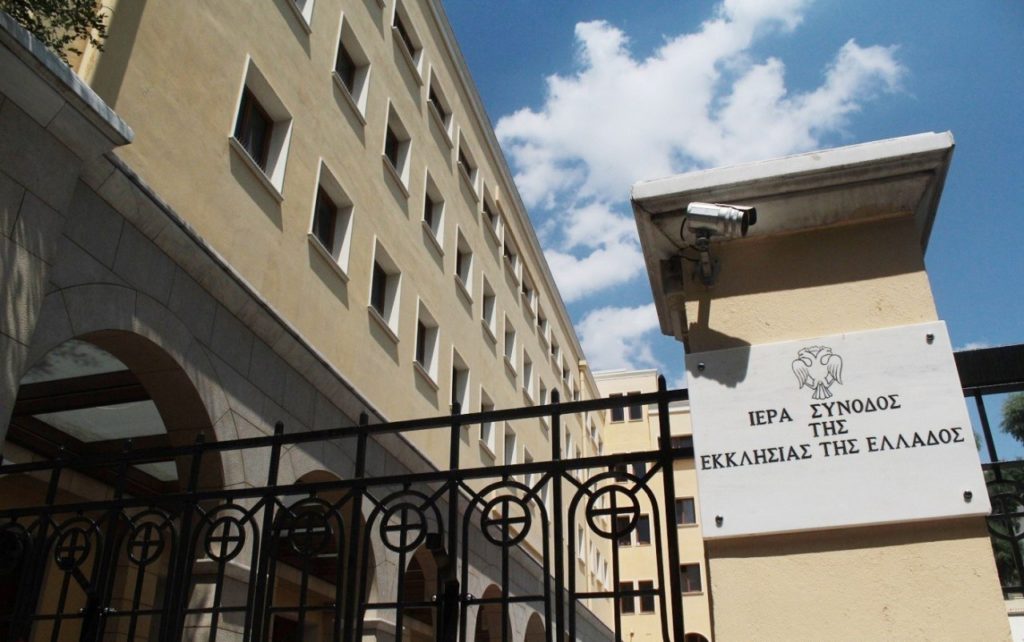LAST UPDATE 19:45
The Article 3 (1) of the Greek Constitution is not contrary to full religious freedom of non-Orthodox religious communities or believers in Greece, the Holy Synod of the Church of Greece stated in an announcement, in which it presented its positions on the process of constitutional revision taking place in the Hellenic Parliament today.
Based on a synodical decision taken at the meeting on February 7, the Church of Greece underlined that the term “prevailing religion” has a historical, cultural and demographic significance, confirming the historical and active interaction of the Greek nation with the Orthodox tradition.
It further said that the Church of Greece supported every constitutional reference and provision for the protection to the Ecumenical Patriarchate, the Church of Crete and the Holy Metropolises of the Dodecanese.
The Church of Greece considered that the proposed amendment to Article 3 introduced a vague factor, “which is bound to cause constitutional interpretation problems and to lead to dangerous assumptions to the relations of the two institutions of Greece (State – Church of Greece) and thus to their relations with the Ecumenical Patriarchate of Constantinople”.
“The introduction of the clause that Greece is a ‘religiously neutral state’ conveys a politically, legally and generally scientifically vague meaning. We cannot go much further in terms of decision making unless it is clarified which model of religious neutrality is implied,” it is noted.
In its announcement, the Holy Synod spoke of a “constitutional revision zeal” aimed at “creating impressions that the public sector in Greece is supposedly dominated by the religion and the institutional modernization of Greek society will take place. However, the secularity of the Greek state is guaranteed by three clauses [(Article 1 (2) and (3), Article 87 (2), Article 13 (4)].
It is also argued that the possibility of imposing a political oath exclusively on all state officials and civil servants would be a form of absolute ban on the expression of religious beliefs and revealed that the meaning of the latter clause was to establish a form of state irreligion.
The relevant provision of recognition of the family as the cornerstone of Greek society should not be abolished or replaced in the clause by other forms of cohabitation, “which are foreign to Greek society and have no prospect of the preservation, the national and social cohesion of the Greek nation.”
Furthermore, the Holy Synod pointed out that the public sector salaries of the clergymen and the grants for church schools are not related to the clause on the prevailing religion.
The Holy Synod stressed that it was a matter for the Parliament to define the legal entity of the Church of Greece and its organizations.
In addition, since 2010 there is no tax exemption specifically provided for the Church of Greece. This indicates that there is no connection between the Article 3 with the taxation of the Church’s organization and there is no privileged tax treatment.
The grade-school religion lessons do not exist in schools’ curriculum due to the Article 3 of the Constitution. The religion lessons are provided for by the Article 16(2) on the development of religious consciousness of the young people.
The Article 3 guarantees that the state recognizes the Orthodox Church based on the patriarchal documents (Tomos 1850, Act 1928) and has full communion with the Ecumenical Patriarchate. This means that other religious communities and groups cannot claim the religious representation of the Orthodox Christians in Greece, which do not meet the above criteria.
Therefore, under Article 3 of the Constitution and its definitions (it defines which Church is the head of the prevailing religion of Greece), the relations between the Greek state and the Orthodox Church can be amended by common laws, without the need to amend the Article 3 of the Constitution. In the same vein, the Church of Greece has requested legislative changes, that is its greater autonomy, which are pending and do not require any constitutional revision.
